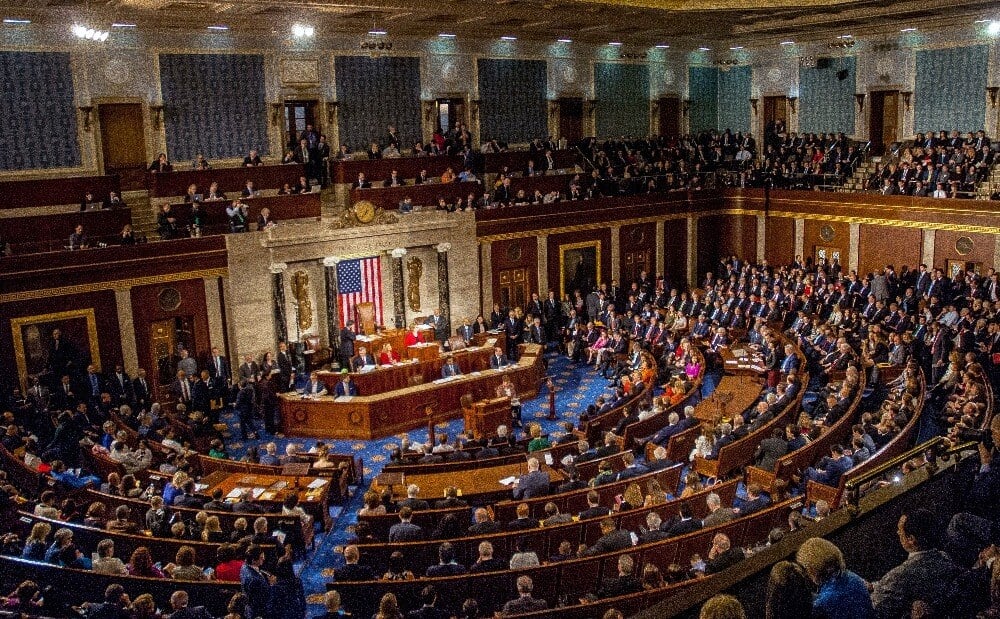The House and Senate have passed different Congressional Budget Resolutions (CBRs). Now, the two chambers must reconcile the differences to pass identical CBRs to unlock the budget process (reconciliation) that could bring deep mandatory and discretionary spending cuts, a huge tax package, and possibly an increase in the debt limit.
The Senate acted first on Feb.21, passing S.Con.Res. 7, by a 52 to 48 vote. The Senate CBR authorizes only a portion of the Trump/GOP agenda. It would provide $175 billion for border security and $150 billion in military funding. It does not include authorization for a tax bill or an increase in the debt limit. It calls for the new spending to be fully offset by spending cuts, but does not specify what those spending cuts should be. Senators say there would be a second budget bill later this year to address tax and spending cut issues.
The House passed its CBR, H.Con.Res. 14, on February 25. The House CBR calls for $2 trillion in spending cuts plus $4.5 trillion in tax cuts and a $4 trillion increase in the debt ceiling. The House CBR calls for $880 billion in spending cuts within the jurisdiction of the Energy & Commerce Committee, which includes Medicaid.
House Republicans have repeatedly claimed they ae not seeking to cut Medicaid benefits. Rather, they say they just want to tackle waste, fraud, and abuse in the program. House lawmakers have suggested such Medicaid reforms as lowering the minimum 50 percent Federal Medical Assistance Percentage (FMAP) match rate, reducing Medicaid expansion funding, implementing per capita caps, and imposing nationwide work requirements. Those reforms—even supplemented by other, non-Medicaid cuts—do not add up to the $880 billion target. This has triggered considerable concern from impacted constituents, lawmakers, and stakeholders.
Republican Senators say they are willing to use the House CBR as the starting point of the process of reconciling the two CBRs. But they say they will demand changes. Those changes could include reducing the $2 trillion spending cuts target, moving the $4 trillion debt limit increase to a non-reconciliation bill and perhaps suspending the debt limit rather than increasing it, and making permanent the extension of the expiring individual and estate tax rules.
The House and Senate must pass an identical CBR before they can begin to put together the filibuster-proof reconciliation bill that will include the Trump/GOP priority agenda. That agenda includes border security, spending cuts, and a huge tax package that will prevent current individual and estate tax rules from expiring at the end of this year along with new tax benefits. Those new tax benefits could include making at least some tip, overtime pay, and Social Security benefits tax-free, and possibly a tax credit for expenses (including, potentially, the cost of long-term care insurance) connected to family caregiving. Extension of certain already-expired tax rules (like, for example, better tax treatment of business loan interest and improved rules for depreciation of certain business acquisitions) is also part of this debate.
Prospects: Negotiations on the CBR are expected to take some time—some are predicting that reaching a House-Senate agreement could take until mid-April or later. However, virtually all Washington insiders predict that ultimately House-Senate negotiators will agree on a compromise CBR. Whether that agreement can pass both chambers, however, remains to be seen. Of particular concern is the closely-divided House Republican Conference where a group of deficit hawks (numerous enough to tank a compromise CBR) say they will resist any reduction in the spending cuts targets or additions to the deficit.
NAIFA Staff Contact: Jayne Fitzgerald – Director – Government Relations, at jfitzgerald@naifa.org.






.png?width=600&height=90&name=Support%20IFAPAC%20%20(600%20%C3%97%2090%20px).png)
